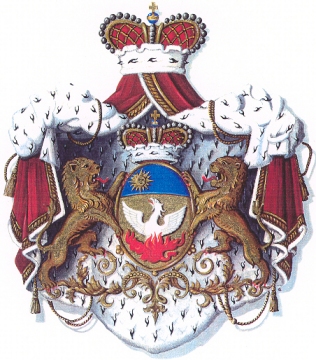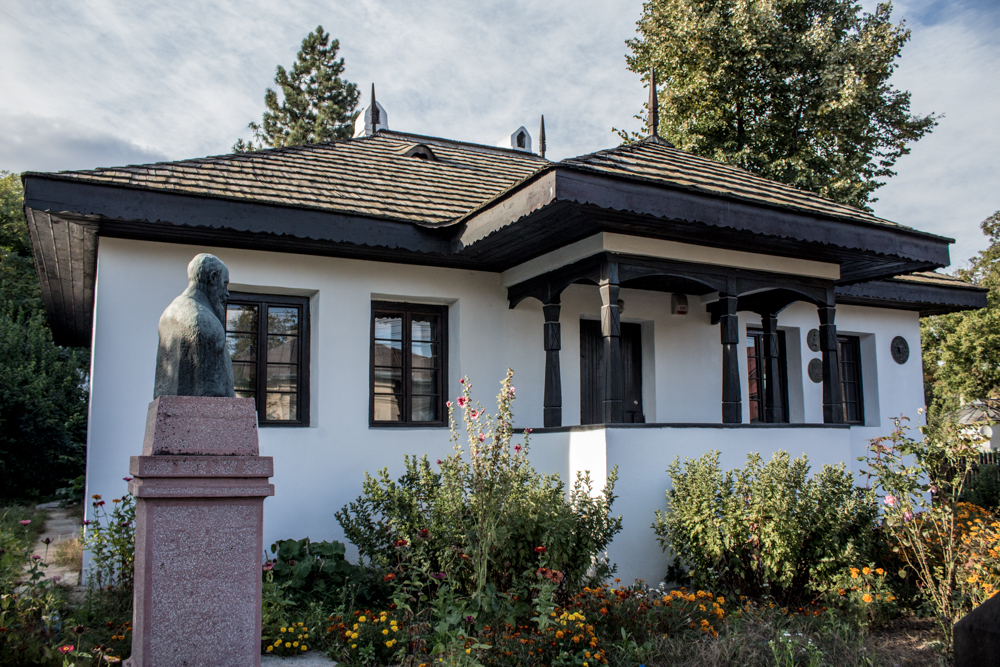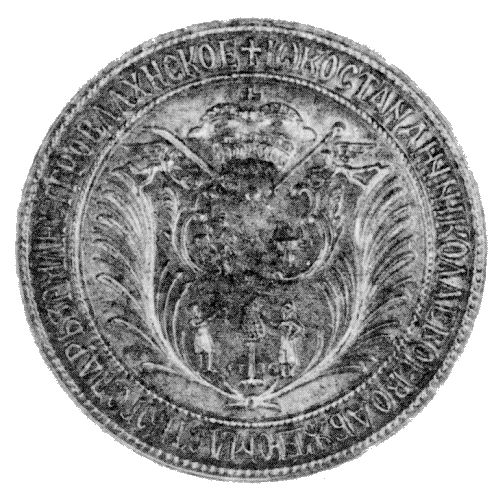|
Ioan II Mavrocordat
John II Mavrocordatos (12 March 1712 – 29 July 1747) was a Phanariote who served as prince of Moldavia from 1743 to 1747. Life Younger son of Nicholas Mavrocordatos, he remained in the shadow of his elder brother, Constantine. He replaced the latter in Moldavia on the occasion of one of his many changes of office as Hospodar of Moldavia from July 1743 to May 1747. John II Mavrocordatos married successively Maria Giuliano and Sultana Mano, of whom he had: * Alexander II Mavrocordatos, surnamed "Firaris" (1754–1819), Grand Dragoman of the Porte, then Hospodar of Moldavia and finally a Prince of the Russian Empire. Sources * Alexandru Dimitrie Xenopol ''Histoire des Roumains de la Dacie trajane : Depuis les origines jusqu'à l'union des principautés''. E Leroux Paris (1896). * Alexandre A.C. Sturdza ''L'Europe Orientale et le rôle historique des Maurocordato (1660–1830)'' Librairie Plon Paris (1913) p. 130-221. * Nicolas Iorga ''Histoire des Roumains et de la rom ... [...More Info...] [...Related Items...] OR: [Wikipedia] [Google] [Baidu] |
List Of Rulers Of Moldavia
This is a list of rulers of Moldavia, from the first mention of the medieval polity east of the Carpathians and until its disestablishment in 1862, when it united with Wallachia, the other Danubian Principality, to form the modern-day state of Romania. Notes Dynastic rule is hard to ascribe, given the loose traditional definition of the ruling family (on principle, princes were chosen from any branch, including a previous ruler's bastard sons – being defined as ''os de domn'' – "of domn marrow", or as having ''hereghie'' – "heredity" (from the Latin ''hereditas''); the institutions charged with the election, dominated by the boyars, had fluctuating degrees of influence). The system itself was challenged by usurpers, and became obsolete with the Phanariote epoch, when rulers were appointed by the Ottoman Sultans. Between 1821 and 1862, various systems combining election and appointment were put in practice. Moldavian rulers, like Wallachian and other Eastern European rule ... [...More Info...] [...Related Items...] OR: [Wikipedia] [Google] [Baidu] |
Hospodar Of Moldavia
This is a list of monarchs of Moldavia, from the first mention of the medieval polity east of the Carpathians and until its disestablishment in 1862, when it united with Wallachia, the other Danubian Principality, to form the modern-day state of Romania. Notes Dynastic rule is hard to ascribe, given the loose traditional definition of the ruling family (on principle, princes were chosen from any branch, including a previous monarch's bastard sons – being defined as ''os de domn'' – "of domn ''Domnitor'' (Romanian Plural, pl. ''Domnitori'') was the official title of the ruler of Romania between 1862 and 1881. It was usually translated as "prince" in other languages and less often as "grand duke". Derived from the Romanian language ... marrow", or as having ''hereghie'' – "heredity" (from the Latin ''hereditas''); the institutions charged with the Elective monarchy, election, dominated by the boyars, had fluctuating degrees of influence). The system itself was challenge ... [...More Info...] [...Related Items...] OR: [Wikipedia] [Google] [Baidu] |
1747 Deaths
Events January–March * January 31 – The first venereal diseases clinic opens at London Lock Hospital. * February 11 – King George's War: A combined French and Indian force, commanded by Captain Nicolas Antoine II Coulon de Villiers, attacks and defeats British troops at Grand-Pré, Nova Scotia. * March 7 – Juan de Arechederra the Spanish Governor-General of the Philippines, combines his forces with those of Sultan Azim ud-Din I of Sulu to suppress the rebellion of the Moros in the Visayas. * March 19 – Simon Fraser, the 79-year old Scottish Lord Loyat, is convicted of high treason for being one of the leaders of the Jacobite rising of 1745 against King George II of Great Britain and attempting to place the pretender Charles Edward Stuart on the throne. After a seven day trial of impeachment in the House of Lords and the verdict of guilt, Fraser is sentenced on the same day to be hanged, drawn and quartered; King George alters Fraser' ... [...More Info...] [...Related Items...] OR: [Wikipedia] [Google] [Baidu] |
1712 Births
Year 171 ( CLXXI) was a common year starting on Monday (link will display the full calendar) of the Julian calendar. At the time, it was known as the Year of the Consulship of Severus and Herennianus (or, less frequently, year 924 ''Ab urbe condita''). The denomination 171 for this year has been used since the early medieval period, when the Anno Domini calendar era became the prevalent method in Europe for naming years. Events By place Roman Empire * Emperor Marcus Aurelius forms a new military command, the ''praetentura Italiae et Alpium''. Aquileia is relieved, and the Marcomanni are evicted from Roman territory. * Marcus Aurelius signs a peace treaty with the Quadi and the Sarmatian Iazyges. The Germanic tribes of the Hasdingi (Vandals) and the Lacringi become Roman allies. * Armenia and Mesopotamia become protectorates of the Roman Empire. * The Costoboci cross the Danube (Dacia) and ravage Thrace in the Balkan Peninsula. They reach Eleusis, near Athens, and destr ... [...More Info...] [...Related Items...] OR: [Wikipedia] [Google] [Baidu] |
Mavrocordatos Family
The House of Mavrocordatos (also Mavrocordato, Mavrokordatos, Mavrocordat, Mavrogordato or Maurogordato; el, Μαυροκορδάτος) is the name of a family of Phanariot Greeks originally from Chios, a branch of which was distinguished in the history of the Ottoman Empire, Wallachia, Moldavia, and modern Greece. History The family – whose members were given a status equal to a Prince of the Holy Roman Empire and later became hospodars – was founded by the late-Byzantine noble (and merchant) Nicholas Mavrocordatos (1522–1570) from the island of Chios. In 1875 the Mavrocordatoi were also recognized as Princes of the Russian Empire by the Emperor Alexander II of Russia. Notable members * Alexandra Mavrokordatou (1605–1684), spouse of the founder, intellectual and salonnière, mother of Alexander Mavrocordatos (1636–1709) :* Alexander Mavrocordatos (1636–1709), son of the founder and of Alexandra Mavrokordatou, styled prince ("Serene Highness") in 1699 by Le ... [...More Info...] [...Related Items...] OR: [Wikipedia] [Google] [Baidu] |
Rulers Of Moldavia
This is a list of rulers of Moldavia, from the first mention of the medieval polity east of the Carpathians and until its disestablishment in 1862, when it united with Wallachia, the other Danubian Principality, to form the modern-day state of Romania. Notes Dynastic rule is hard to ascribe, given the loose traditional definition of the ruling family (on principle, princes were chosen from any branch, including a previous ruler's bastard sons – being defined as ''os de domn'' – "of domn marrow", or as having ''hereghie'' – "heredity" (from the Latin ''hereditas''); the institutions charged with the election, dominated by the boyars, had fluctuating degrees of influence). The system itself was challenged by usurpers, and became obsolete with the Phanariote epoch, when rulers were appointed by the Ottoman Sultans. Between 1821 and 1862, various systems combining election and appointment were put in practice. Moldavian rulers, like Wallachian and other Eastern European rule ... [...More Info...] [...Related Items...] OR: [Wikipedia] [Google] [Baidu] |
Nicolas Iorga
Nicolae Iorga (; sometimes Neculai Iorga, Nicolas Jorga, Nicolai Jorga or Nicola Jorga, born Nicu N. Iorga;Iova, p. xxvii. 17 January 1871 – 27 November 1940) was a Romanian historian, politician, literary critic, memoirist, Albanologist, poet and playwright. Co-founder (in 1910) of the Democratic Nationalist Party (Romania), Democratic Nationalist Party (PND), he served as a member of Parliament of Romania, Parliament, President of the Chamber of Deputies of Romania, Deputies' Assembly and Senate of Romania, Senate, cabinet minister and briefly (1931–32) as Prime Minister of Romania, Prime Minister. A child prodigy, polymath and polyglot (person), polyglot, Iorga produced an unusually large body of scholarly works, establishing his international reputation as a Medievalism, medievalist, Byzantine studies, Byzantinist, Romance studies, Latinist, Slavic studies, Slavist, Art history, art historian and Philosophy of history, philosopher of history. Holding teaching positions at ... [...More Info...] [...Related Items...] OR: [Wikipedia] [Google] [Baidu] |
Alexandru Dimitrie Xenopol
Alexandru Dimitrie Xenopol (; March 23, 1847, Iaşi – February 27, 1920, Bucharest) was a Romanian historian, philosopher, professor, economist, sociologist, and author. Among his many major accomplishments, he is the Romanian historian credited with authoring the first major synthesis of the history of the Romanian people. Life Born in Iaşi, where he graduated from high school, he went on to Vienna in 1870 to study law and then to Berlin, where he studied philosophy. In 1868, he made his debut in ''Convorbiri Literare'' with a series of studies on Romanian traditions and on Romanian institutions. At first, Xenopol served as a prosecutor in Iaşi, but he later decided to dedicate himself to the study of history. Starting in 1883, he was a professor of universal history at the University of Iaşi, where he served as rector from 1898 to 1901. He was elected member of the Romanian Academy in 1893. In his 1899 French-language ''Les Principes fondamentaux de l'histoire'' ("Th ... [...More Info...] [...Related Items...] OR: [Wikipedia] [Google] [Baidu] |
Grand Dragoman Of The Porte
The Dragoman of the Sublime Porte (Ottoman Turkish: ; el, �έγαςδιερμηνέας της Υψηλής Πύλης), Dragoman of the Imperial Council (''tercümân-ı dîvân-ı hümâyûn''), or simply Grand or Chief Dragoman (''tercümân başı''), was the senior interpreter of the Ottoman government and ''de facto'' deputy foreign minister. From the position's inception in 1661 until the outbreak of the Greek Revolution in 1821, the office was occupied by Phanariotes, and was one of the main pillars of Phanariote power in the Ottoman Empire. History In the Ottoman Empire, the existence of official interpreters or dragomans (from the Italian rendering of Arabic , Ottoman ) is attested from the early 16th century. They were part of the staff of the ('head secretary'), who was responsible for foreign affairs within the Imperial Council. As few Ottoman Turks ever learned European languages, from early times the majority of these men were of Christian origin—in the main ... [...More Info...] [...Related Items...] OR: [Wikipedia] [Google] [Baidu] |
Prince Of Moldavia
This is a list of rulers of Moldavia, from the first mention of the medieval polity east of the Carpathians and until its disestablishment in 1862, when it united with Wallachia, the other Danubian Principality, to form the modern-day state of Romania. Notes Dynastic rule is hard to ascribe, given the loose traditional definition of the ruling family (on principle, princes were chosen from any branch, including a previous ruler's bastard sons – being defined as ''os de domn'' – "of domn marrow", or as having ''hereghie'' – " heredity" (from the Latin ''hereditas''); the institutions charged with the election, dominated by the boyars, had fluctuating degrees of influence). The system itself was challenged by usurpers, and became obsolete with the Phanariote epoch, when rulers were appointed by the Ottoman Sultans. Between 1821 and 1862, various systems combining election and appointment were put in practice. Moldavian rulers, like Wallachian and other Eastern European rul ... [...More Info...] [...Related Items...] OR: [Wikipedia] [Google] [Baidu] |
Constantine Mavrocordatos
Constantine Mavrocordatos (Greek: Κωνσταντίνος Μαυροκορδάτος, Romanian: ''Constantin Mavrocordat''; February 27, 1711November 23, 1769) was a Greek noble who served as Prince of Wallachia and Prince of Moldavia at several intervals between 1730 and 1769. As a ruler he issued reforms in the laws of each of the two Danubian Principalities, ensuring a more adequate taxation and a series of measures amounting to the emancipation of serfs and a more humane treatment of slaves. Life First rules Born in Constantinople (now Istanbul) as a Phanariote member of the Mavrocordatos family, Constantine succeeded his father, Nicholas Mavrocordatos, as Prince of Wallachia in 1730, after obtaining boyar support. He was deprived in the same year, but again ruled the principality five more times from 1731 to 1733, from 1735 to 1741, from 1744 to 1748, from 1756 and 1758 and from 1761 to 1763. He managed to regain control over Oltenia (the Banat of Craiova) through the T ... [...More Info...] [...Related Items...] OR: [Wikipedia] [Google] [Baidu] |
Phanariote
Phanariots, Phanariotes, or Fanariots ( el, Φαναριώτες, ro, Fanarioți, tr, Fenerliler) were members of prominent Greek families in Phanar (Φανάρι, modern ''Fener''), the chief Greek quarter of Constantinople where the Ecumenical Patriarchate is located, who traditionally occupied four important positions in the Ottoman Empire: Voivode of Moldavia, Voivode of Wallachia, Grand Dragoman, and Grand Dragoman of the Fleet. Despite their cosmopolitanism and often-Western education, the Phanariots were aware of their Greek ancestry and culture; according to Nicholas Mavrocordatos' ''Philotheou Parerga'', "We are a race completely Hellenic". They emerged as a class of wealthy Greek merchants (of mostly noble Byzantine descent) during the second half of the 16th century, and were influential in the administration of the Ottoman Empire's Balkan domains in the 18th century. The Phanariots usually built their houses in the Phanar quarter to be near the court of the Patriar ... [...More Info...] [...Related Items...] OR: [Wikipedia] [Google] [Baidu] |









